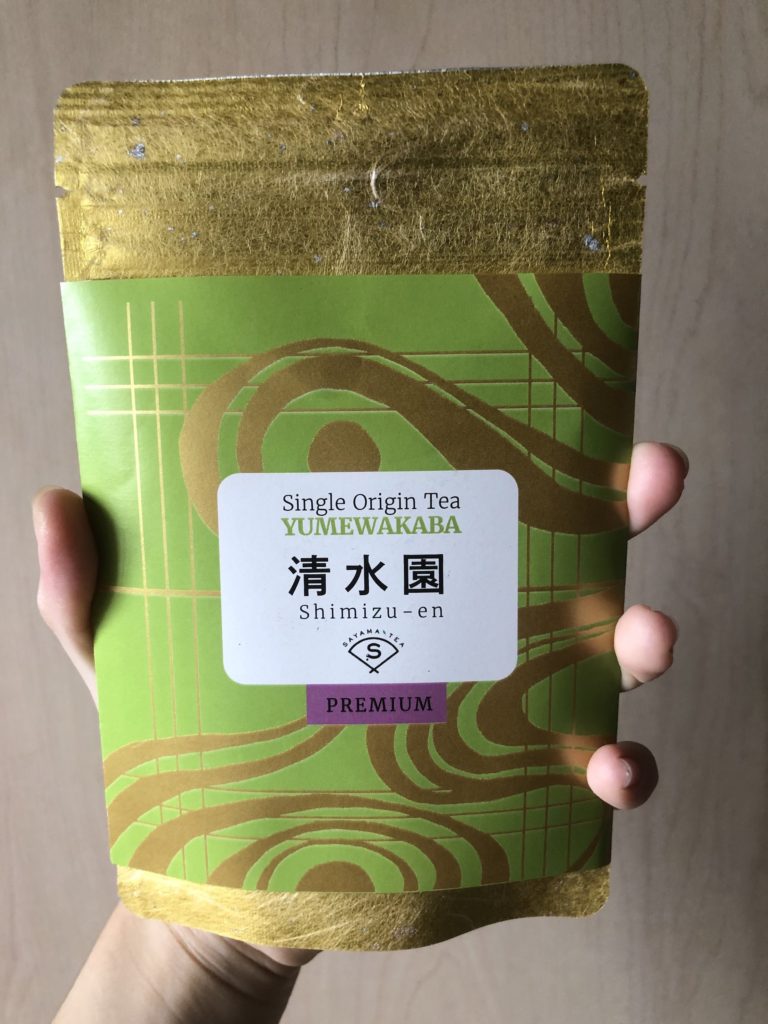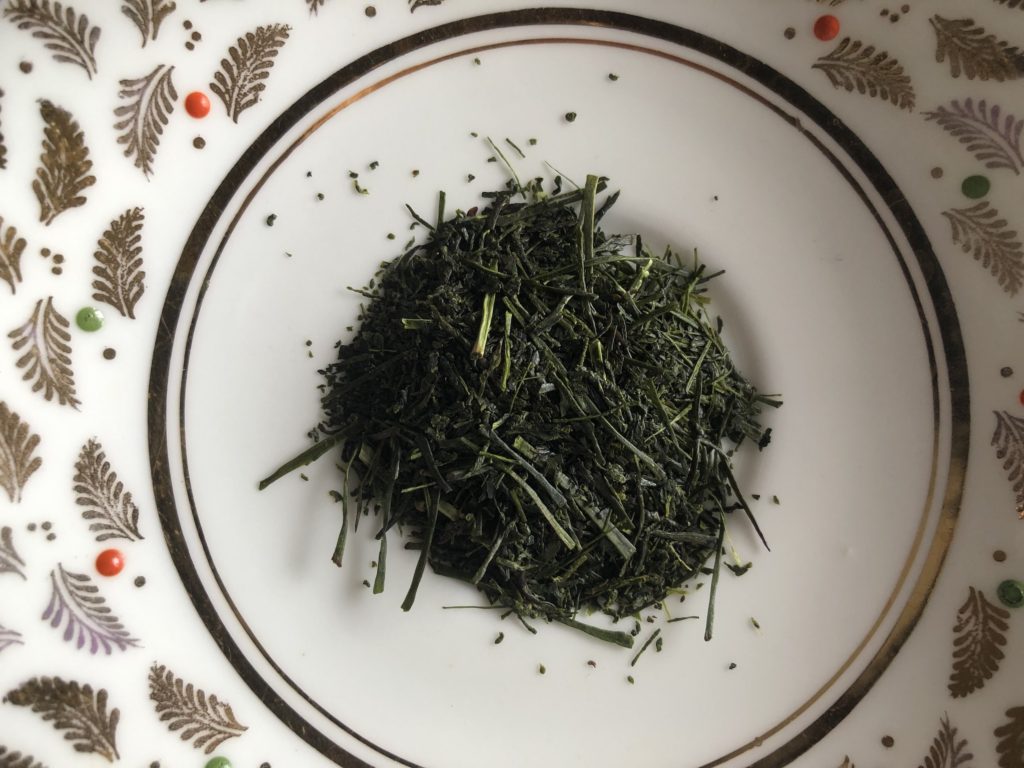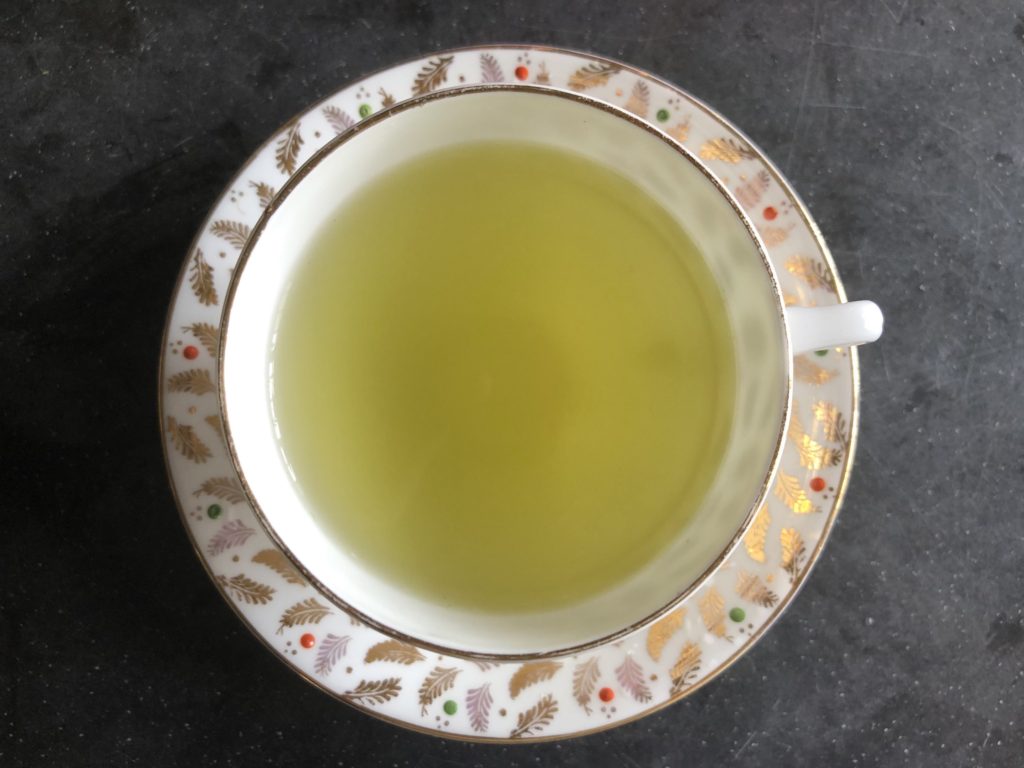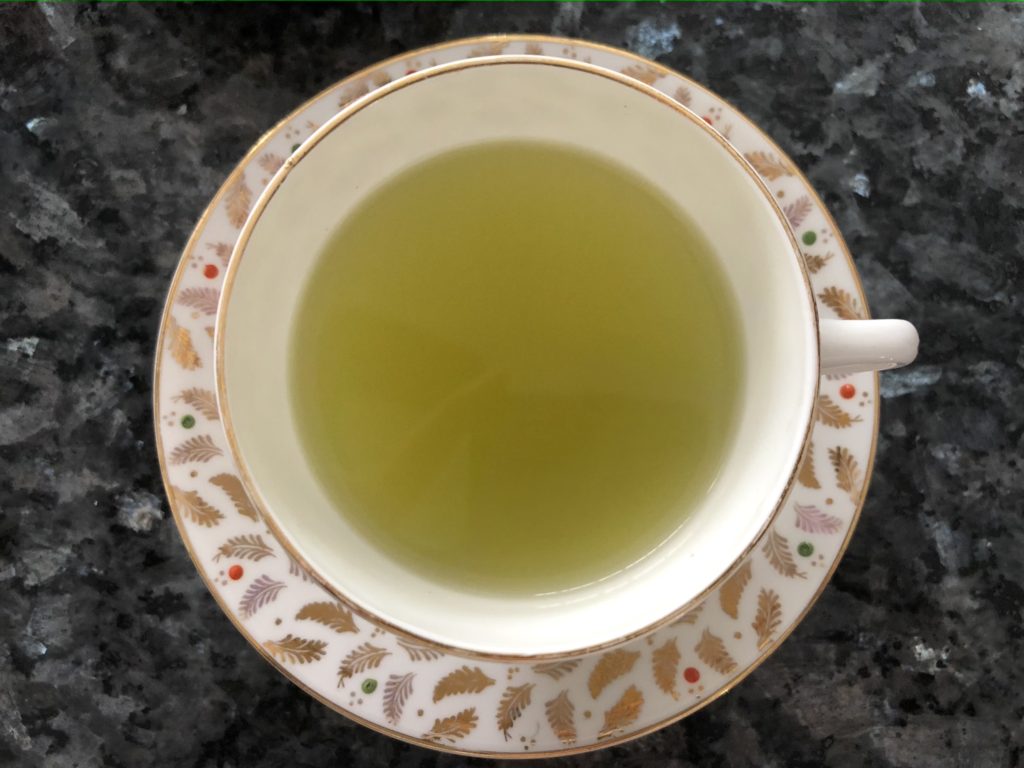
Can you believe we’re two-thirds done with this tea series? I’m planning a huge tea-tasting comparison when it’s over (and getting thoroughly tea drunk) but for now, let’s carry on with the individual tea reviews.
First Impressions

I’m getting fresh, grassy notes from this, and for some inexplicable reason, something that reminds me of flowers. It’s not very distinct, but there is such an impression.
Tasting Notes

Round 1: The tea is grassy, with a very subtle bitter note and some umami. Surprisingly, it’s not as sweet as I thought it would be. For my second session with this tea, I decided to try a higher starting temperature and that brought out the bitter notes, which were present at the back of my mouth. There isn’t much astringency, even with a stronger bitter note.

Round 2: One thing I noticed about this tea is that it’s a little duller in colour, especially compared to the others. I’ve got this 落ち着いている感じ (feeling of being calm/settled) when I’m drinking the tea. Weird that the Japanese pops into my brain but it’s definitely what I’m feeling/thinking as I drink this. The tea liquor still has its grassy and bitter notes, pretty much in line with what I got in round one.
Round 3: The tea has mellowed out even further, if it’s possible. I’m also getting an additional note – not sure what I’d describe it as but I think it’s related to my initial impressions of the tea. Although the flavours here were a bit more muted, the aftertaste is still pretty strong – I can definitely say that this is a tea that lingers in my mouth.
Overall, this tea is something I’d describe as 地味 (jimi), which can be translated as plain or sober. It’s actually a pretty good tea to have while you work, since it’s calming and doesn’t demand too much of you as you’re drinking the tea.
Tea Description
As usual, the description comes from the tea cards (really super helpful in giving me information about the tea and farm!):
“Yume-wakaba is a new brand raised by Saitama Tea Research Institute in 2006. This tea has the advantage of a floral aroma and a clear umami taste. As Shimizu-en’s Yume-wakaba is withered for one to two hours, its aroma is even more highlighted.”
Reading this, it’s pretty clear that I missed out on the floral notes! I’m wondering if it’s to do with my temperature, but I was playing around during my two sessions and only got an additional flavour note (that I didn’t manage to identify as floral) once. Clearly more experimentation is needed so I’m glad I bought a 50g packet of tea.
Farm Description
This is what the tea card has to say about Shimizu-en:
“Shimizu-en is one of the old tea farms that started cultivating tea in the middle of Edo Period. It has a tea garden of 3.4 hectares in Fujisawa, Iruma city, Saitama. Shimizu-en, which has been working the land for a long time, sticks to the good old method of tea production, that is, picking tea leaves by hand. At the prime time, they employ about 30 people to pick the leaves.
“The 18th owner, Mr Tomoya Shimizu, is a hard worker. He makes tea bags while cultivating and manufacturing tea.”
Shimizu-en’s website (Japanese)
